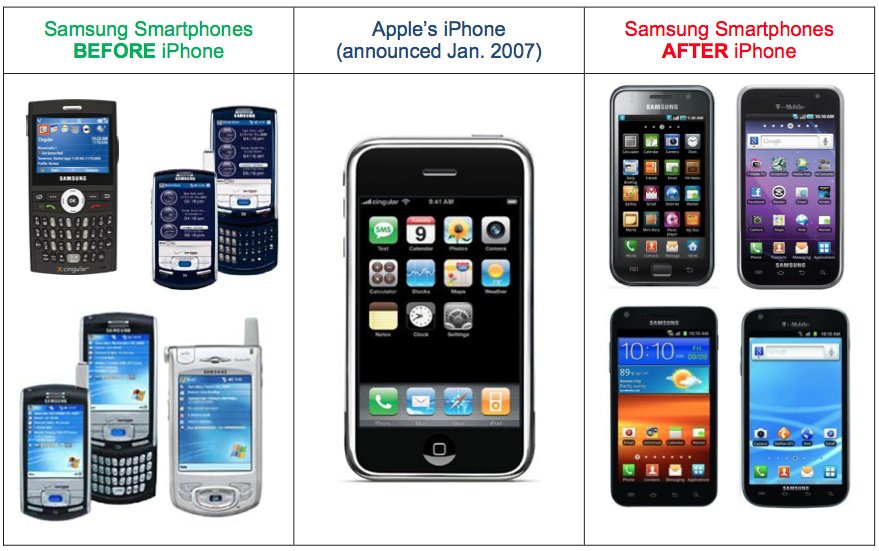A federal appeals court has ruled that Apple has the right to block rival Samsung from using its patented inventions in its own handsets, a decision that could have major consequences for future products from the South Korean electronics maker.
The U.S. Court of Appeals for the Federal Circuit ruled on Thursday that Apple is entitled to blocking competitors from using its intellectual property. The decision was first reported by Bloomberg
"The right to exclude competitors from using one's property rights is important," the Federal Circuit's decision reads. "And the right to maintain exclusivity — Â a hallmark and crucial guarantee of patents rights deriving from the Constitution itself — is likewise important."
Thursday's decision is so important that Samsung had the backing of a number of major players in the tech space, including Google, HTC, LG, and Rackspace. Apple nevertheless prevailed in its appeal, in a split 2-1 decision.
Apple was prompted to file an appeal because in the original suit, U.S. District Court Judge Lucy Koh determined that damages and licensing fees paid by Samsung were enough for its illegal patent infringement. The iPhone maker, however, felt it should have the ability to block the use of certain inventions — Â a stance the appeals court agreed with.
"This is not a case where the public would be deprived of Samsung's products," the Federal Circuit said. "Apple does not seek to enjoin the sale of lifesaving drugs, but to prevent Samsung from profiting from the unauthorized use of infringing features in its cellphones and tablets."
Apple and Samsung agreed to settle all non-U.S. patent disputes last year, leaving the California cases open.
The final judgment in the first Apple v. Samsung jury trial ended in an initial $1.05 billion win for Apple. That number was later whittled down to $929 million due to juror error and appeal, and the sum was later again reduced to $400 million.
 Neil Hughes
Neil Hughes








 Malcolm Owen
Malcolm Owen
 William Gallagher
William Gallagher
 Charles Martin
Charles Martin
 Christine McKee
Christine McKee
 Wesley Hilliard
Wesley Hilliard

 Andrew Orr
Andrew Orr








47 Comments
Ok... what patents and inventions in particular?
Google?
Duh! Why did this take so fk'n long? What a concept...That patents should actually protect your IP! Judge Kohl is a hack who should be impeached.
well.. off to the appeal, samsung?
While I'm at it, download an ad blocker for iOS 9! I just downloaded Crystal and now AI actually loads quickly, and doesn't go through all the BS refreshes like it does without a blocker. IT IS MUCH FASTER! AI's technical foundation is a total POS! ...but now problem solved.